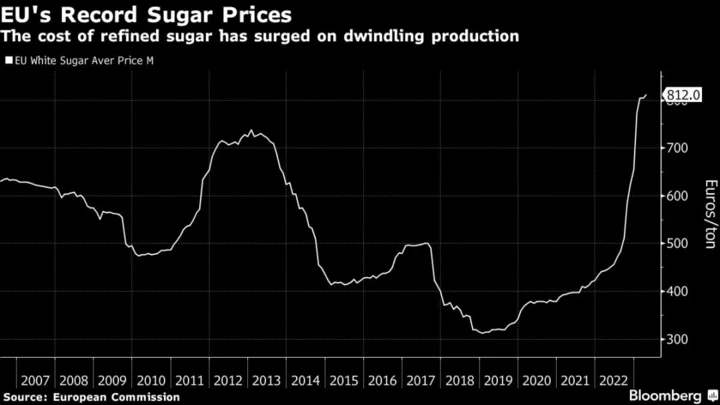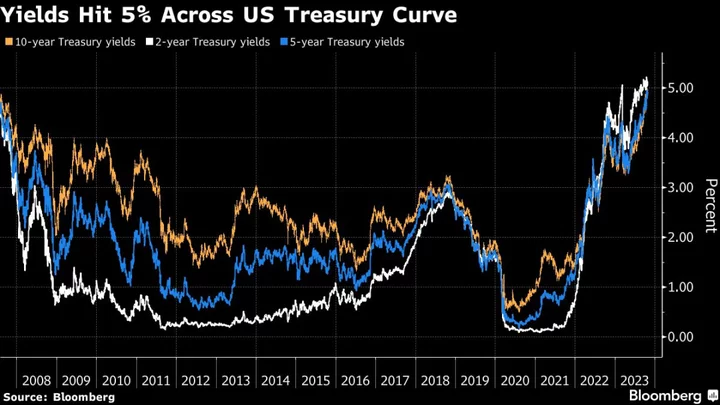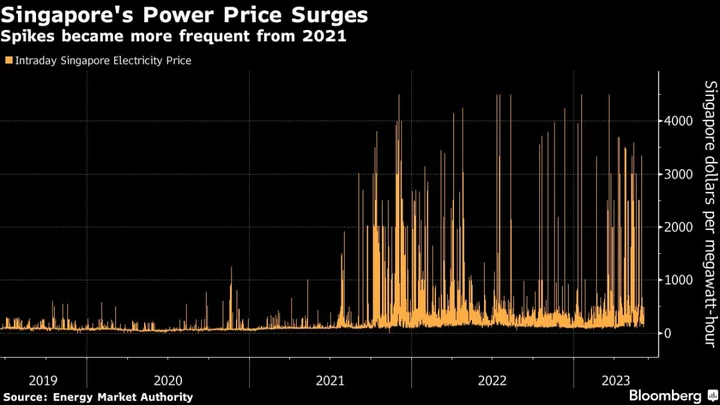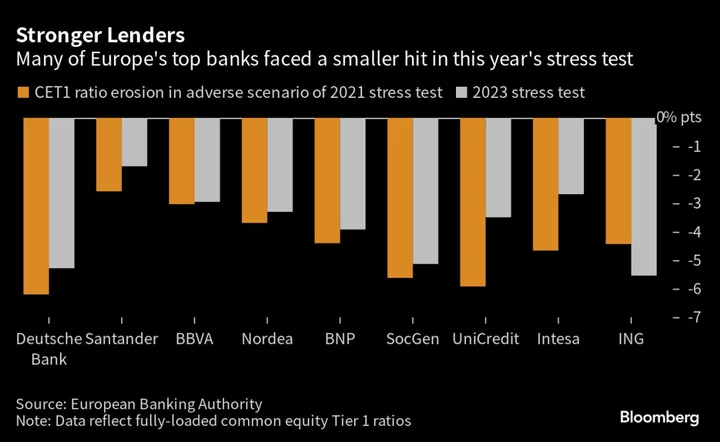European consumers may soon have to pay more for sweet treats as summer heatwaves push up the price of sugar.
Sugar buyers and producers are currently negotiating contracts for the 2023-24 harvest season, which starts in October. Prices being cited are over €1,000 a ton, said people with knowledge of the matter — more than double what they were in the middle of last year. That’s set to raise costs in the snack aisle.
Last year’s drought-related drop in sugar output offers a glimpse into what might unfold if the same were to happen again. Sugar production for the current 2022-23 season fell 12% relative to the previous one, and at 14.6 million tons, was one million tons below initial EU estimates. While large companies — and in turn, consumers — were shielded from big price hikes thanks to long-term contracts, prices in the spot market have surged 58% since last October, squeezing smaller and medium-sized confectioneries.
Warning signs are already flashing: rain delayed this year’s planting by roughly a month, and rising temperatures have since increased the risk of both drought and pests spreading faster and ravaging small sugar beet crops.
Producers have so far taken a cautious approach to pricing, said John Stansfield, a senior sugar analyst at DNEXT Intelligence. “Critically, it’s what happens in the next two or three months: do we get rain or do we get just drought conditions?”
With supplies already tight and the threat of drought looming, Germany’s Suedzucker AG and France’s Tereos are among those who expect prices to stay high. And this year, with new contracts being signed at record price levels, the extra costs won’t be easy to avoid. Kona Haque, head of commodities research at ED&F Man, said some companies will have to pass the burden along to consumers.
“It’s not the end of sugar price inflation for Europe,” said Yury Sharanov, president of CIUS, a lobby group representing both sugar consumers and industrial-scale buyers in Europe.
The situation has been exacerbated by low levels of sugar stock, which shrank last year as companies dipped into their reserves. Destocking will be “the ultimate driver for EU sugar prices, which are incredibly sticky,” said Julian Price, an independent sugar consultant and former president of the European Association of Sugar Traders.
Despite all this, some analysts are cautiously optimistic that production may increase. The EU has forecast that output could reach 15.5 million tons this season, with an spike in Poland’s sugar beet acreage offsetting a decline in France.
Not everybody agrees. Analysts have also expressed concern about yellow virus, a disease that can wipe out sugar beet crops. Following France’s restrictions on neonicotinoids — a type of pesticide that protects against the yellow virus — experts at Green Pool Commodity Specialists estimate that Europe’s sugar production could drop below the EU estimate to 14.8 million tons.
“Whilst there have been few reports so far of virus yellows symptoms, it is still too early to say if 2023 beet crops have dodged the yellow virus bullet,” Green Pool analysts noted. “It is possible that symptoms appear this month.”
Such instability isn’t limited to Europe. The world’s sugar comes from cane — grown in tropical climes — and beets, which thrive in traditionally cooler areas further north. Extreme weather is hurting both kinds, with El Niño threatening to curb cane harvests in Southeast Asia and Africa, and rising temperatures making Europe less hospitable to beets.









